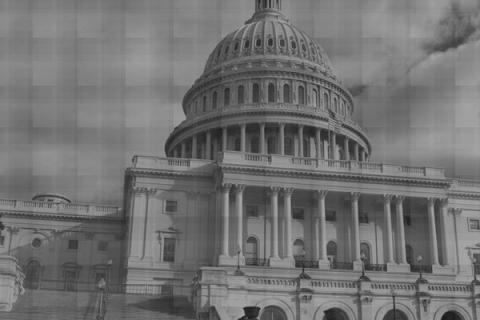
The Commonwealth of Pennsylvania, expected to be an important swing state in 2012, has made headlines all week for a controversial voter ID law backed by the state's Republicans. Critics are calling it a partisan ploy to restrict ballot access and fix the results of November's general election in favor of Republican candidates, including presumptive presidential nominee, Governor Mitt Romney.
But on the same day that a judge ruled in favor of Pennsylvania's voter ID law, a spokesman for the Pennsylvania Department of State, which handles the commonwealth's elections, also announced that the government would be abandoning two online voting initiatives that would boost voter turnout in November if implemented.
The first is an initiative that allows voters to apply online for absentee ballots, and the second would allow Pennsylvania voters to register online to vote.
The Department of State says that implementing the online voting initiatives as well as the new voter ID requirements upheld in court this week would be more than the administration could handle.
But the Philadelphia Inquirer reports:
"Stephanie Singer, the top elections official in Philadelphia, said she was unaware that there was an issue with setting up a system to allow voters to register and apply for absentee ballots online, and said shifting more activity online would actually make for less paperwork."
Department of State Commissioner Jonathan Marks disagrees:
"Paper voter registrations and paper applications for absentee ballots have been used by election offices in all 67 counties for years. Voters and election workers are familiar and comfortable with both. We are confident that this system will continue to work well."
According to the National Conference of State Legislatures:
"Ten states currently offer online paperless voter registration (Arizona, Colorado, Indiana, Kansas, Louisiana, Maryland, Nevada, Oregon, Utah, and Washington). In addition, California, Connecticut and South Carolina have passed legislation facilitating online voter registration, but they have not yet begun registering voters electronically."
In Arizona, where online voter registration was implemented in the United States for the first time in 2003, the state has enjoyed notable success with increased voter registrations and major cost reductions through eliminating the data entry process:
"Arizona led the way with this innovation, implementing their electronic voter registration program in 2003... and has reported success with their program. The secretary of state reports that over 70 percent of all voter registrations are now performed online, and that the state saw an increase of 9.5 percent in voter registrations from 2002 to 2004 with the implementation of online registration. Arizona also reports cost savings by eliminating the data entry process for state and county employees that a paper-based system requires, as well as increased accuracy in its voter rolls. The costs associated with a paper registration were 83 cents, while the cost of an online registration was 3 cents..."
Between its voter ID law and the government's inability or unwillingness to implement online voter registration initiatives planned for November, the battleground state of Pennsylvania has become a proving ground for the fight over election policy and its effects on partisan politics.
